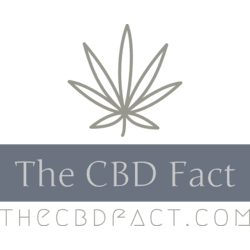How Long Does Wine Last?

Introduction
Wine, a beverage cherished for millennia, has a rich history and diverse array of flavors. Whether you’re a casual enthusiast or a seasoned connoisseur, understanding how long wine lasts is crucial to preserving its quality and enjoying it to the fullest. In this comprehensive guide, we’ll delve into the factors influencing wine longevity, how to properly store wine, and provide answers to frequently asked questions to enhance your wine experience.
Understanding Wine Longevity
The longevity of wine varies significantly depending on several key factors:
Type of Wine
Different wines have different aging potentials. While some wines are meant to be enjoyed young, others benefit from aging to develop complex flavors and aromas. Generally, red wines tend to have longer aging potential compared to white wines.
Quality
High-quality wines with balanced acidity, tannins, and fruit concentration often have better aging potential than lower-quality wines.
Storage Conditions
Proper storage is paramount to preserving wine quality. Factors such as temperature, humidity, light exposure, and bottle position can significantly impact wine longevity.
Closure Type
The closure type—whether cork, screw cap, or synthetic cork—can influence how long a wine will last. Cork closures allow for gradual oxygen exchange, which can aid in aging, while screw caps provide a more airtight seal, preserving freshness in wines meant for early consumption.
Varietal and Region
Some grape varieties and wine regions are known for producing wines that age exceptionally well. Understanding the characteristics of different varietals and regions can give insights into their aging potential.
How to Properly Store Wine
To maximize the lifespan of your wine and ensure it reaches its full potential, follow these guidelines for proper storage:
Temperature
Store wine in a cool, consistent environment with temperatures ideally ranging from 45°F to 65°F (7°C to 18°C). Fluctuations in temperature can cause wine to age prematurely or develop off-flavors.
Humidity
Maintain humidity levels between 50% and 80% to prevent corks from drying out, which could lead to oxidation and spoilage.
Light
Keep wine away from direct sunlight and fluorescent lighting, as UV rays can degrade wine and cause it to develop off-flavors.
Position
Store wine bottles horizontally to keep the cork moist and in contact with the wine, preventing air from entering the bottle.
Vibration
Minimize exposure to vibration, as it can disturb the sediment in wine and negatively impact its aging process.
Odors
Avoid storing wine in areas with strong odors, as wine can absorb odors from its surroundings, affecting its flavor profile.
FAQs (Frequently Asked Questions)
How Long Does Red Wine Last After Opening?
Once opened, red wine typically lasts for 3-5 days if stored in a cool, dark place or refrigerated. Oxidation will gradually degrade the wine’s quality, so it’s best to consume it within this timeframe.
What About White Wine?
White wine generally lasts for 2-3 days after opening if stored properly. Like red wine, refrigeration can extend its shelf life by slowing down oxidation.
Does Wine Expire?
While wine doesn’t “expire” in the same way as perishable foods, it can degrade over time, especially if not stored correctly. Old or poorly stored wine may lose its flavor and aroma, becoming undrinkable.
Can I Age Any Wine?
Not all wines are suitable for aging. While many red wines with high tannins and acidity can benefit from aging, most white wines and lighter reds are best consumed young.
What’s the Best Way to Store Wine If I Don’t Have a Wine Cellar?
If you don’t have a wine cellar, store wine in a cool, dark closet or cabinet away from heat sources and sunlight. Investing in a wine refrigerator or cooler can also provide optimal storage conditions.
Should I Lay Down Sparkling Wine Bottles?
While most wines benefit from horizontal storage to keep the cork moist, sparkling wine bottles should be stored upright to minimize the risk of pressure buildup and potential cork ejection.
Conclusion
Understanding how long wine lasts and how to properly store it is essential for preserving its quality and enjoying it at its best. By considering factors such as wine type, quality, storage conditions, and closure type, you can ensure that your wine collection ages gracefully and delights your palate for years to come. Cheers to the timeless pleasure of wine appreciation!
- Jalupro Super Hydro Skin Booster Treatments Near Farnham, Surrey - May 9, 2025
- How To Get Swelling Down After Lip Filler - May 8, 2025
- Dermal Fillers Near Cheam, Surrey - May 7, 2025
